The Cook-Peary Files: General Hubbard’s Munificence: Special Investigation #2140/#5039
Written on December 2, 2024
This is the latest in a series of posts that publish for the first time significant documents related to the Polar Controversy.
1914 was a climactic year in the Cook-Peary saga. Cook’s congressional lobbyist, Ernest C. Rost, had managed to get several authoritative speeches under the names of several members of Congress inserted into the Congressional Record calling into question Peary’s polar claim and have them widely distributed under their franking privileges. Those and an avalanche of pre-printed postcards sent to Congress by auditors who heard Cook at his extensive Chautauqua appearances called for an investigation into his own claim to have been first to the North Pole appeared to be heading toward achieving that end. Peary decided Cook had to be stopped at any cost.
As usual, that cost fell upon General Thomas H. Hubbard, President of the Peary Arctic Club.
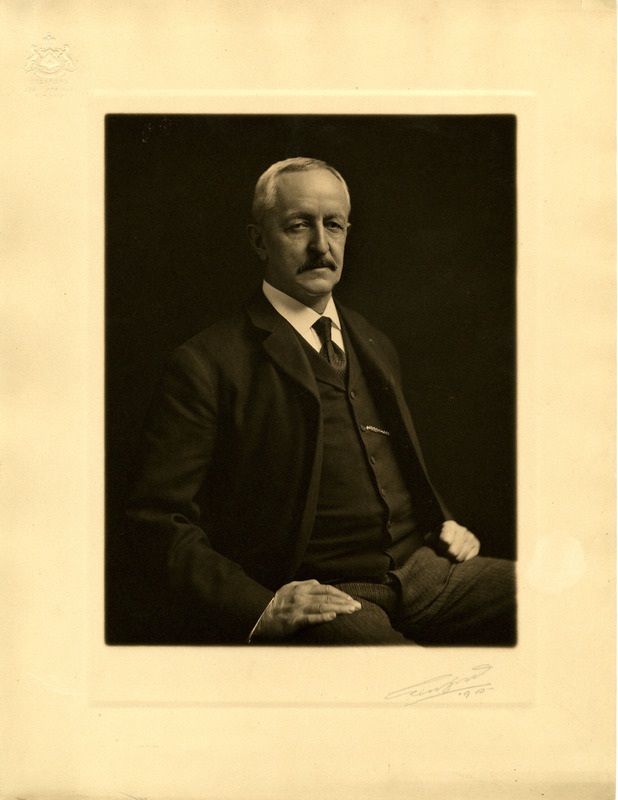
Thomas H. Hubbard
To counter Cook’s appearances, Hubbard engaged the services of the William J. Burns National Detective Agency to follow Cook’s movements and obtain prior notice of his scheduled appearances, so that hecklers could be placed in his audiences to call his claims into question. Frederick A. Cook became the Burns Agency’s Special Investigation #2140 in Chicago, where The Polar Publishing Company had offices at Steinway Hall, and #5039, in New York, where he usually stayed at the Prince George Hotel when on business there.
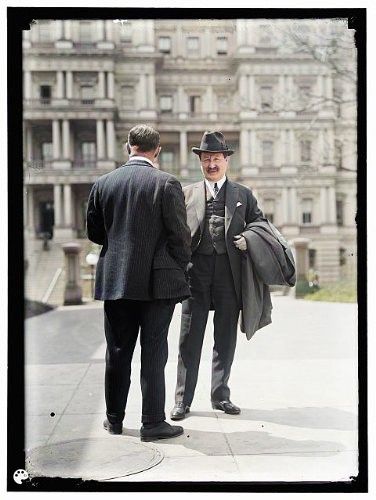
William J. Burns
Burns’s agents kept Hubbard informed through coded messages, sent by telegram, collect:
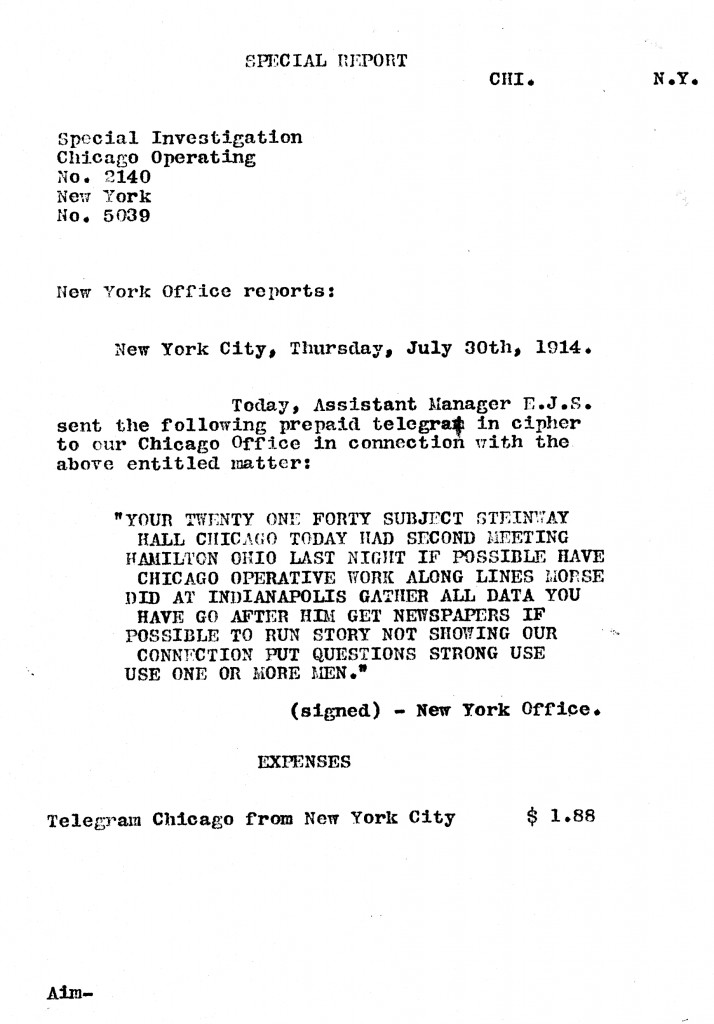
In this manner they were able to obtain, in advance, information on where Cook would be appearing next. To counter the effect of his appearances they flooded each venue with a packet of anti-Cook material designed to undermine his credibility and introduce doubt as to the veracity of his claims both about his polar conquest and the “campaign of infamy” being waged against him by Peary’s fantastically rich and powerful backers.
The Burns Agency billed Hubbard weekly for their work, plus expenses:
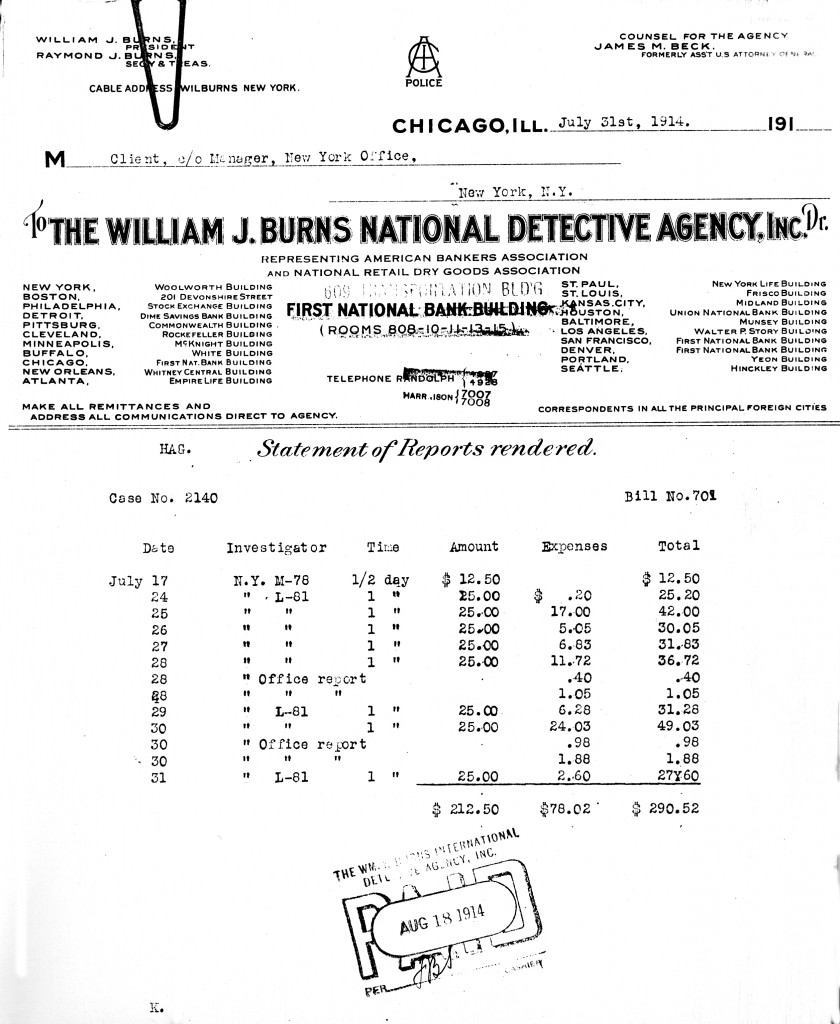
When one considers that the value of the dollar today is roughly 32 times less than that of 1914, Hubbard paid an enormous sum for this surveillance. The cost of the sample half-month shown here would amount to $9,280. If typical, that would come to more than $222,000 per annum.
Added to that, the printing of more than 100,000 copies of an anti-Cook pamphlet entitled The North Pole Aftermath were distributed at a cost of $40 per 1,000, or about $128,000 in today’s dollars.
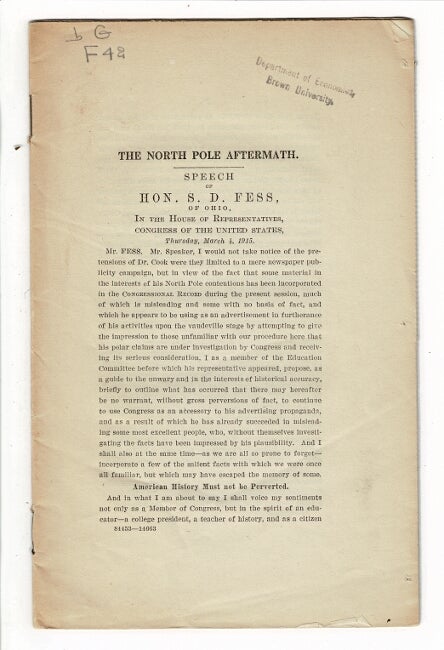
This munificence ended on May 19, 1915 when General Hubbard suddenly died of erysipelas.
Cook embarked on an expedition aimed at climbing Mt. Everest at about this time, and by the time he returned, his chances of getting his hearing before Congress had faded. Soon thereafter, Rost turned on Cook and produced a devastating anti-Cook speech for Representative Henry Helgesen to introduce into the Congressional Record, sued Cook for non-payment of his lobbying services, and won a settlement of more than $3,000 for back wages.
The Burns Agency documents are samples of scores of them that are among Peary’s papers, record group XL, at NARA II.
Filed in: Uncategorized.